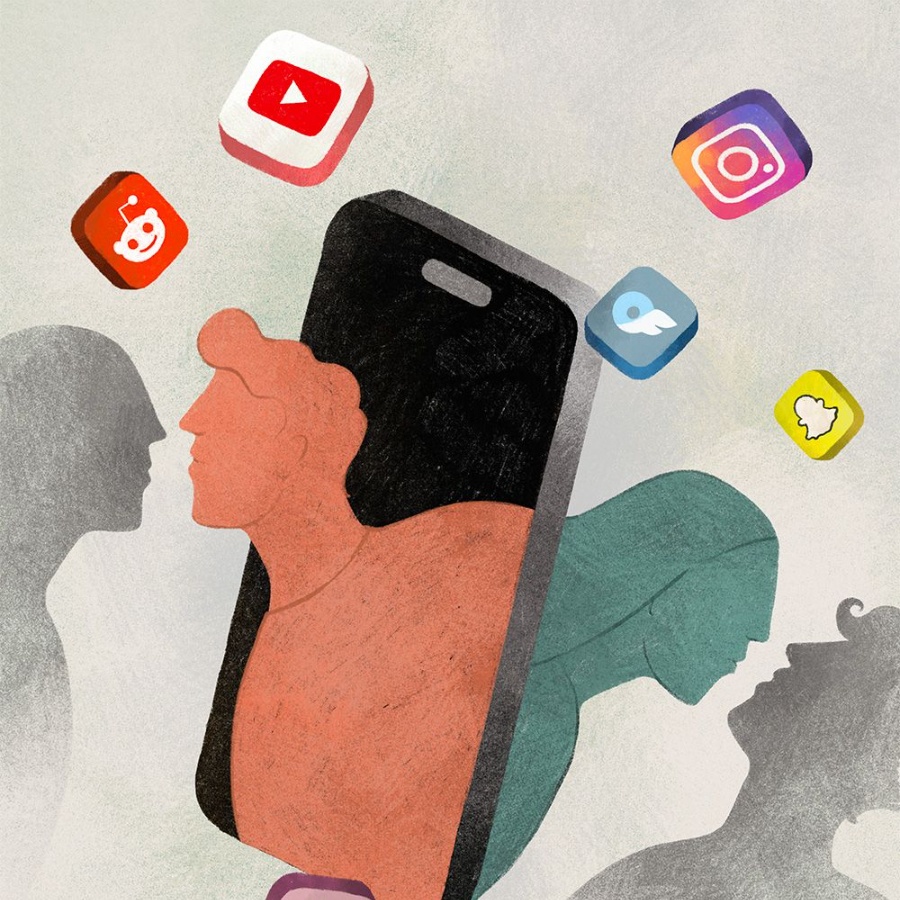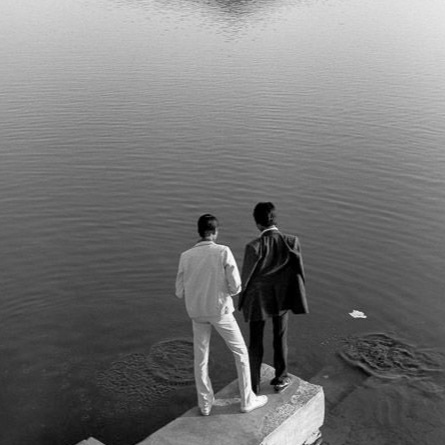There are so many ways to express your love today. The phrase ‘love language’ is often thrown around to refer to how people express and enjoy love—you might prefer words of affirmation, constant physical touch, thoughtful actions, or tangible, thoughtful gifts. Yet however you experience love, at the root of it all is the importance of self-love, of knowing yourself before you can make room for others in your heart. As we consider all the options, maybe it's time to ask a question we have been ignoring for far too long. How clingy are we allowed to be in love, now that we have discovered the beauty of self-love? And is self-love easier as we grow older and make peace with all our flaws and warts? Mumbai-based interior designer Maryam D*, who tied the knot three weeks ago with criminal lawyer Taufiq S*, says love in your fifties can be more liberating than it can ever hope to be in your twenties. Maryam is 50, and Taufiq is 58. The pair were in a relationship for nearly nine years before they decided to put a ring on it—in a modest ceremony in Mumbai with just 50 guests.
“I was 41, freshly separated from my husband of 14 years, and struggling hard to smile at life, when I first met Taufiq. I was accompanying a friend to the court for some legal matters and I just bumped into him in the corridors. As he lived in the same neighbourhood, our families shared a nodding acquaintance. So basically, we knew of each other but didn’t know each other,” says Maryam over the phone.
Maryam was not looking for a relationship; it was only a few months after her marriage came to an end in 2015. Her daughter was just 11 at that time, and she wanted to channel her attentions towards raising her child and solidifying her career. As Taufiq and she had exchanged numbers to ‘stay in touch’, they exchanged a few messages initially, starting with the vanilla ‘nice meeting you’. “And we meant it,” she says with a chuckle. “Frankly, we both assumed that the other was married, we didn’t know that each of our marriages had come apart at the seams, so the conversation was general chitchat initially.” Taufiq was separated from his wife and had two daughters. Each marriage eventually ended without acrimony.
“As we started exchanging more messages, we realised we were waiting for this connection to happen every day,” reminisces Maryam. “Gradually, we started meeting each other with friends and were going out as a group. Nearly every weekend, all of us would gather at a friend’s farmhouse at Alibaug. But, amid all that fun and laughter, we both knew we had started harbouring strong feelings for one another. It was there each time we looked at each other. And soon it came to a point where we admitted it, but then decided to wait till our kids had grown older and approved of this new person in their parents’ lives.” Fortunately, for them, their respective children developed an instant liking for the other person.
Neither Taufiq nor Maryam faced any resistance from their families over their marriage, though everyone kept insisting that they marry earlier, when they were ‘still young’. “We felt no rush to get married,” says Maryam. “We somehow knew, even through the little arguments and differences, that we would hold on to each other.” For Taufiq, the decision to marry after the nine-year courtship was motivated by the need to bring a sense of stability: “It also sends a message to your partner that you wish to cement the relationship for the future. Marriage brings a sense of legitimacy to your social responsibility—you can attend public functions together with less tongues wagging! For me, this time around, I do try and understand what the woman wants in a relationship because of the experiences I have had in my earlier marriage. Also, one’s expectations from one’s partner should be realistic, one should only expect things that you know the other person can provide.”
For many, the decision to get married can mean giving up one’s hard-won independence. But today, Maryam and her daughter continue to stay in their own home. Meanwhile, Taufiq lives with his father. “It is an unusual arrangement, I know, ” Taufiq admits. “She lives just down the road—it’s a two-minute drive. It’s because I want to be with my dad, who is 87. I would like to take care of him and not just appoint a caretaker to do the job. At the same time, I also realise Maryam and her daughter have lived in their house for over nine years now; it’s their comfort zone. It’s unfair to uproot them and have them adjust to a new environment. So we catch up every day over dinner, she comes over to meet my dad, and we are happy with this arrangement.”
While such an arrangement would certainly prevent unhealthy co-dependency, it’s just as important for couples to be intentional about seeing each other to keep the connection alive. Let’s recall the Scandinavian sleep method, for instance, which went viral last year—instead of couples sharing a duvet, each can have a duvet of their own to reduce sleep disruption and yet share the same bed. While Maryam and Taufiq are not endorsing any such new-age practices, they insist they have simply found an equation that works best for them. “It’s true that we are in no hurry to upend our lives just because we are married,” she says, “but we make it a point to meet every other day, and our weekends (starting Friday) are all about each other—mostly, we travel. Through the week everyone’s pursuing their work and then there is so much to share when we meet…it’s a mad rush of excitement! In fact, before my wedding, when I told my friends about this arrangement, they actually felt I am going to enjoy the best of both worlds.”
Maryam allows no misgivings to deflate her positivity. She believes that having found love in middle age has been a blessing in disguise. The years following the breakdown of their first marriages led them on a journey of self-discovery. They each confronted their individual demons and slayed them on their own. Which meant no one felt the need to burden the other with unfair expectations. There is no denying that as a society we are more progressive now than we were a decade ago when it comes to matters of the heart. But ageism still guards the gates of love just as fiercely and there is an asceticism that is expected of us as we get older. Which makes stories like Maryam and Taufiq’s all the more special.
“I was only 27 when I married the first time. I remember being so insecure; there was this constant need to know what-when-where about the other person. When one is young, we expect a lot from our partners, and we argue easily over the silly stuff. As one gets older, one learns to identify the silly stuff that can be overlooked.” Instead, now, the smaller gestures are what really sweep her off her feet. “I have a green thumb, and have nurtured a modest little balcony garden. One day Taufiq bought a rose plant, and asked me for tips to grow it. I offered all the suggestions I could, and he took it home. A couple of weeks later, he bought me a phone that I desperately needed, and sent it with a rose glued to the box. It was the first rose that had bloomed on that sapling, and the note said there was no one else he would give it to because I was that special to him.”
Ever since that day, the wallpaper on her phone remains unchanged—it continues to be the rose he nurtured for her.
*Names have been changed to protect the individuals’ privacy





